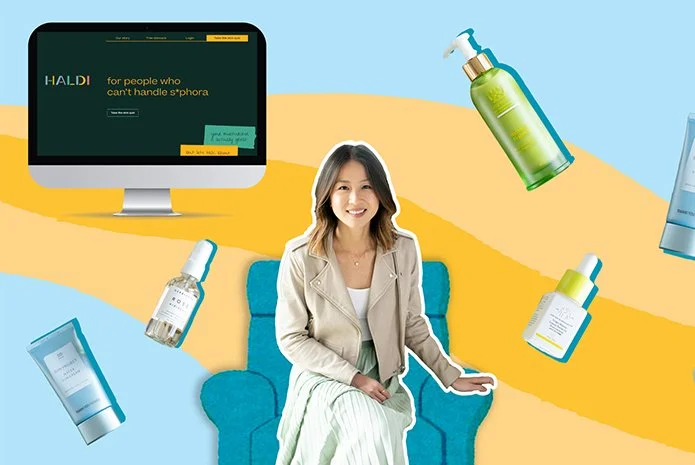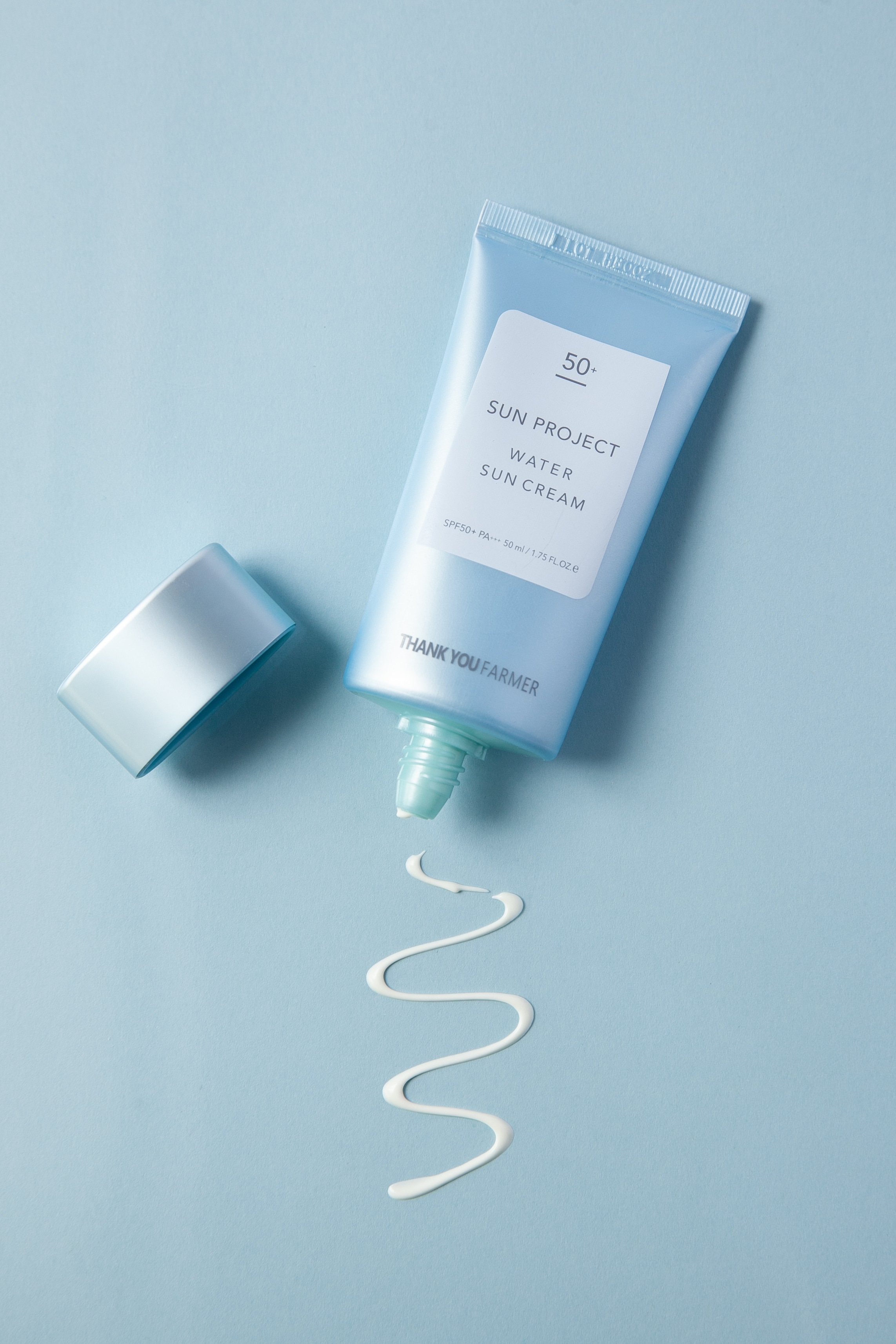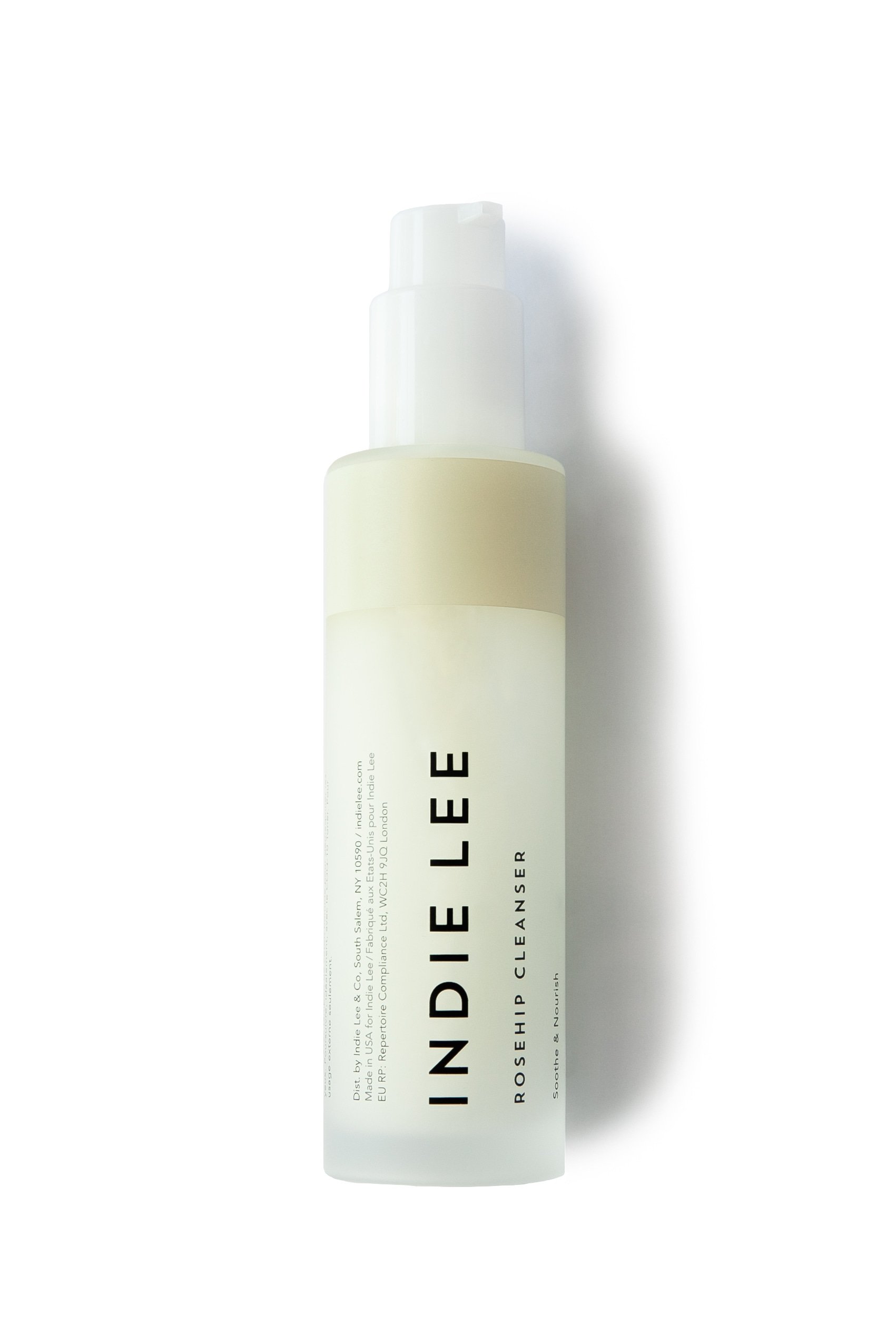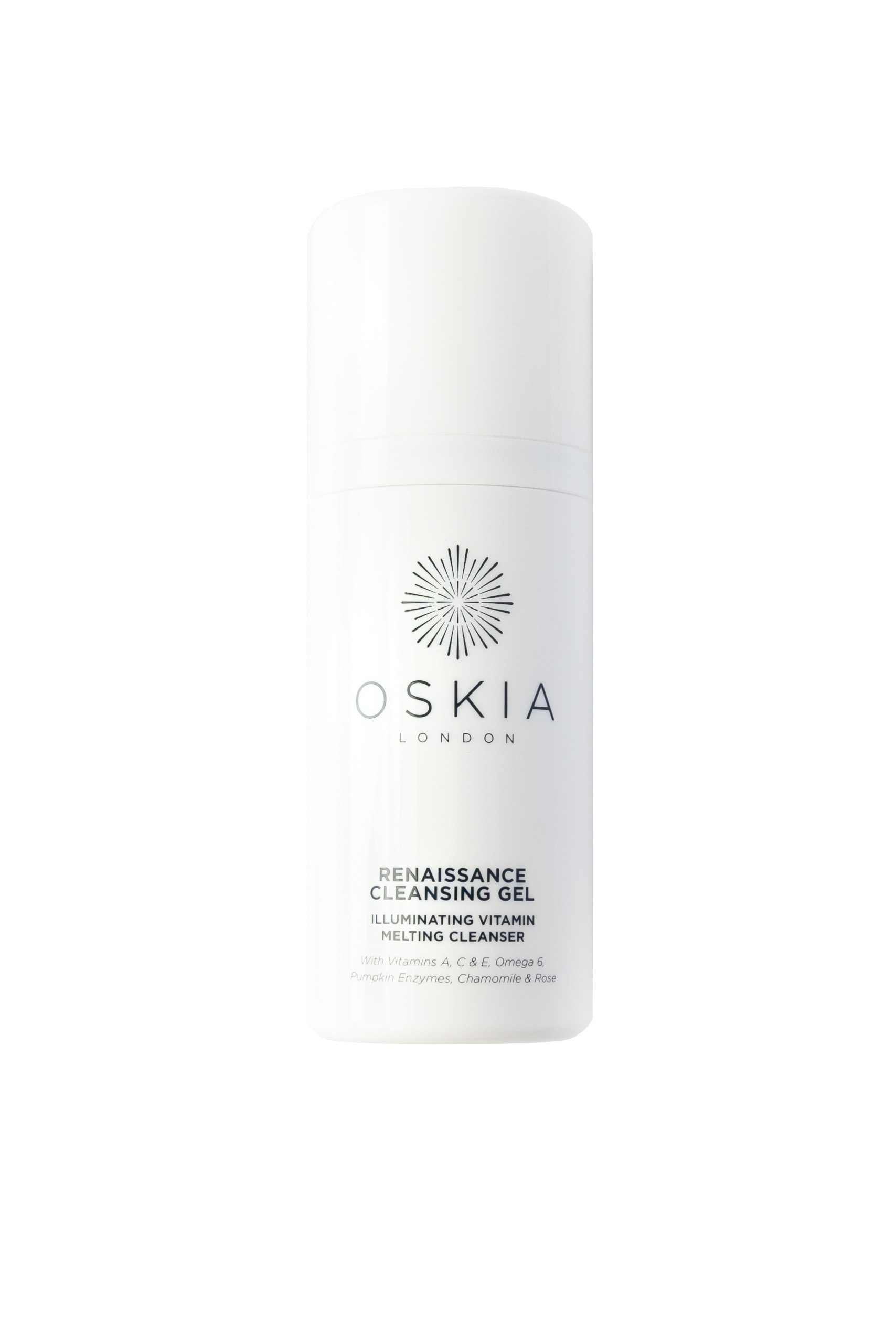HALDI, JULIA HUANG: The Skincare Concierge
As of 2020, the US is the world’s most lucrative skincare market with a revenue of approximately $17.6 billion USD. However, when it comes to purchasing skin care products, 65% of female consumers find the number of options available to be overwhelming. While some customers enjoy entering a Sephora store to browse products, there is a large cohort of consumers who cringe at the idea, but still, need skincare products. That’s where Haldi comes in. Haldi is a personalized skincare recommendation service.
Co-Founders Julia Huang and Simran Kalra met back when they were both working at Google. The idea for Haldi stemmed from Simran’s passion for skincare and ingredients. We were able to catch up with Julia in San Francisco to talk about her founder journey.
“My co-founder was super passionate about this space. Simran had previously worked at Amex, then Google, and then Youtube in Marketing. When she left Google in 2018 and was thinking about what to do next, a conversation with friends caused her to look at the shift happening in the skincare industry. There are so many great brands coming out in the post-Glossier world with a shift of consumers wanting to understand ingredients more and how to put a skincare routine together” says Julia.
Do you know that friend that everyone goes to for product advice? Yeah, that was Simran in this situation. Originally Simran tested the market by creating a quiz that was shared with over 300 friends. “Folks would fill it out and Simran would create a personalized routine for them.”
“We did a lot of deep listening during the early days in which we heard how overwhelming it was to go into places like Sephora, and Ulta and shop online to figure out what products are right for you. But there was also a component that no one else was tackling in which consumers had existing products that they liked and wanted to keep in their routine. We wanted to build an experience that was not only about helping you find the right products but to work off what you already have and fill in the gaps around your existing products to create a full routine.”
“We look out for the next generation of brands that are doing amazing things in skincare and try to keep our operations lean.”
Founded in 2018, Haldi (which means turmeric in Hindi) launched in 2020 March as soon as the pandemic hit. “We use a lot of data science to minimize inventory.” Haldi operates as a wholesaler on the backend in which they order products from brands, hold inventory and resell them on their website. They test every single product they recommend and only source hero products from brands for a curated collection.
Surprisingly, the pandemic helped Haldi with customer adoption since people spent more time at home and were willing to experiment and indulge in self-care.
“Our first hire was a data scientist. We knew that was what made our company special, the ability to create highly personalized experiences and recommendations. In the past 3 years, we have attempted to collect and categorize data on every single skincare product out there, catalog the information and figure out how to leverage it.”
The Marketing
“We spent a lot of time in the early days building off our core roots and assumptions which was that friends share their beauty routines with friends,” Julia mentions how powerful word of mouth marketing has been for Haldi that they would refer one friend at a company and the next thing they knew the entire Peleton marketing team would be on Haldi. Never underestimate the power of a good share!
“Since we don’t have a branded product, the power of telling friends became very important for us. We are a service and for us, storytelling was a major component of our offering.”
For launch, Haldi engaged in building out a referral program to make it easy for users to share the platform with friends. They even allowed tracking in which friends could see products that overlapped in purchases to foster community building. “We also did a lot of influencer seeding. We would invite folks to take a quiz and tell their communities about Haldi.”
A bulk of Haldi’s traffic came from influencer seeding and word of mouth/referral marketing. They didn’t engage in paid advertising until two years post-launch. Talk about keeping things lean and scrappy!
The Challenges
Ah yes, the challenges. Every startup has a never-ending list of obstacles. For Haldi, their highlighted issues revolved around the website build-out. “We had outsourced building the website to a firm in India. The hours were the complete opposite of the West Coast and it took a lot of effort to be able to build the platform. When we got to a stage where we wanted to add a new feature and hire engineers, we were told by our engineers that the code was crap and they could not build on top of it. We had to start from scratch and redo everything and rebuild the exact same platform we had but in a much more scalable way. It was so painful.”
“I always knew I wanted to be an entrepreneur, but I didn’t quite know how to go about it. I just kept on digging whenever the opportunity arose.”
Born in China, Julia grew up in Montreal and then eventually moved to Philadelphia. She came from a family of Scientists and knew early on that she was interested in entrepreneurship. “I had a business in 4th grade where we sold pillows for stuffed animals at school. It was the most popular stand at the school fair.”
Julia’s love for curiosity and entrepreneurship eventually led her to a nerdy summer camp where she would meet founders and hear them speak about their entrepreneurial journey. This curiosity followed her to Wharton where she ended up working with Warby Parker back when Neil Blumenthal and Jeff Raider were MBA students.
“I got to see first-hand how everything came together from the ground up. From coming up with the early prototype of the glasses, doing market research, conducting focus groups in my sorority, and the naming process. My mind was blown by seeing this brand come to life and I knew at that moment that I would want to do something within the consumer space, but wasn’t ready to jump right in after undergrad.”
Julia felt that she needed to get a “real job” and ended up working at McKinsey in SF followed by Google where alas, she met her co-founder and the rest is history.
The Advice
“I just had a baby 6 months ago, which has been a wild ride for me. It forces you to be creative around your time and manage your priorities.” Julia shares her advice with us for those looking to launch a consumer-facing platform:
Find a friend or a fractional CTO that is on your side to help guide the technical portion of your business. It is an investment worth making!
You can build so much in a scrappy way. Be really scrappy about your beginnings. It will allow you to build muscles that you will leverage later on if you can build discipline in the early days.
Check every credit card statement every month and look at which line items you should focus on or cancel. Take this opportunity to switch over to a lower plan. This financial discipline does scale later on!
Your team is everything! Hire slowly and invest the time to understand what you need. Spend time on the role definitions, the skillsets, and the cultural elements this individual would bring.
Delegate and be thoughtful about what role you are looking to fill. You can't be the owner of every function in order to scale.
If you’re over Sephora and want to optimize your skincare routine, visit Haldi here for a personalized recommendation.
Photo courtesy of Haldi.
Written by Alysha Malik.





